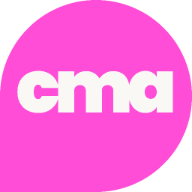Market research for a startup is a vital way to get information that’ll support your business and its growth, making your dreams for your company likely to succeed.
This article contains the following:
- A brief definition of market research
- How market research helps startups
- A step-by-step guide to conducting market research
Defining market research
Market research is the process of getting information about a specific market - the customers, their needs, what they want, and the best ways to fulfill them. This can help you make business decisions that’re more likely to be successful, facilitating company growth.
This involves conducting surveys, interviews, competitive intelligence, and more research to gain insights into the latest trends, industry developments, and target audiences.
But, why is market research important? Put simply, it’s critical to companies of any size, be it startups or enterprises, but for startups, it’s vital to learn whether or not your product idea or prototype has a chance within the market.
So, how do you apply this research to startup businesses? And how can this be used to propel your business toward the next stage of growth?
Why startup market research is helpful
Market research is important for all companies, but it’s especially crucial for new businesses. This is because startups don’t have the same customer base or established reputation as long-standing brands.
Market research will help you determine your competitive advantage, your target personas, and what customers want from your business. Market research will help you create a marketing strategy that promotes your strengths and appeals to your target customers.
It’ll also help you develop products and services that match your customers’ needs. Plus, it’ll give you insights into your customers’ behavior, desires, and motivations - all essential to your business's success.

Types of market research
Before you dive in and start conducting your research, it’s important to be aware of the different types of market research and which one is best for your company.
There are three main types of market research - qualitative, quantitative, and strategic:
- Qualitative research is exploratory research that looks at the “why’s” behind customers’ behavior and motivations.
- Quantitative research, on the other hand, is more focused on how many people are buying a certain product and why.
- Strategic research is longer-term and broader in scope and looks at how your company will fit into the marketplace over time.
Once you’ve determined the type of research you want to do, you can begin collecting information.
Your first step should be conducting an internal analysis. Look at your company’s strengths, weaknesses, opportunities, and threats (known as “SWOT analysis”). This’ll help you create an internal marketing plan or marketing audit.
This first step will determine why you will conduct this research in the first place. It will give you the goal.
Fill out the form below to download our ebook on the essential elements of a customer marketing plan. This eBook focuses on six elements to build into your customer marketing plan, from the early stages to elements that’ll support you during growth and scale-up.
Begin with a clear goal
What is it that you want to achieve from your research? There may be a lot of details that you want to know about the market, but why do you want to know them?
This is important to keep in mind as you go through the various steps of your research so that you can make sure each step is taken with the intention of achieving that original goal.
Finalize a budget and timeframe
When you’re finalizing a budget for your research, make sure you invest enough money and time to get an accurate picture of the market. If you don’t, you won’t get the data you need, and if you spend too much, you’ll waste funds.
Identify your sample size and method
Once you’ve got a better idea of just how much money you are willing to spend on your market research, you can start to think about who you want to survey and what method you want to use to collect the data.
Consider the following questions:
- What sample size do you want to use?
- Will you create an online or offline survey?
- Will you interview a certain number of people or organizations?
Your sample size should be representative of your target audience as a whole. Don’t be tempted to just analyze your loyal customers or customer advocates, as it won’t give you all the information you need to see actual sustained growth.
Choose your chosen data collection method
There are a number of different methods you can use to collect data for your market research; your budget, sample size, and goal will affect which ones you choose to go with. You may want to consider the following:
Focus groups - This is a group interview where you present a topic or product prototype, and people are invited to participate based on their expertise of the topic or product. You can conduct this online or in person, usually facilitated by a moderator.
Surveys - There’re many different types of surveys, such as online, in-person, and written surveys. Depending on the type of research you want to conduct, you may want to consider using an online survey tool. Online tools offer the ability to collect data from a large sample size and even provide analysis to go with it.
Interviews - You can conduct interviews both online and in person, based on your target audience. This can be a great way to get in-depth data from your respondents and get perspectives you may not otherwise be able to access.
Create your research questions
Once you have a method for collecting data, you can start to create your research questions. Knowing what questions to ask is key when conducting market research for your startup.
It’s important to be as specific as possible, as vague or leading questions will skew the data. Keeping a neutral tone will encourage your participants to remain honest with their answers, and give insights into the customer journey with your company that you might not have accessed otherwise.
These questions can be based on the product or service that your business offers, what your customers want or need, and the competition that already exists in the market.
Analyze the data collected
It's important to meticulously analyze your findings and make note of any trends or patterns you see. This’ll help you to draw conclusions from your research and make you better equipped to make informed decisions going forward.
You’ll also want to identify any data gaps that may exist and make a note of any potential bias that was present in the sample.
Examine these findings
Validate these findings by understanding the context around them. What’re the main takeaways from the data? What can you apply to your business to make it stronger? What don’t you want to do based on your findings?
You may find the data points you were hoping to prove wrong turned out to be correct. Or, you may find that the market uses a certain product or service in a way that you didn’t expect. This is okay, but it’s important to look at these results and ensure you understand why they are occurring.
Create a report
Finally, you want to create a report that includes the findings from your research, as well as any other details that you collected or analyzed. This can be used by your management team or by you when making future business decisions.
A market research report can be in any format and can include graphs, charts, and other visual elements. It’s important to make sure that the report is clear, and concise, and uses any data or visual elements to support your findings and recommendations.
Take your market research to the next level
Marketing research is an important aspect of all businesses, especially for new startups. If you want your business to be successful, you need to understand your target market and what they want and need.
But what about your customers? What's the next stage to developing your understanding of your company’s success?
Customer research is fundamental and foundational to this long-term success. However, without the right structure, valuable insights get lost in messy systems, complicated spreadsheets, and unfocussed meetings.
Our Customer Research Certified: Masters provides the most systematic approach to creating deep connections with your customers, implementing insights to drive growth and revenue, and enacting company-wide change.




